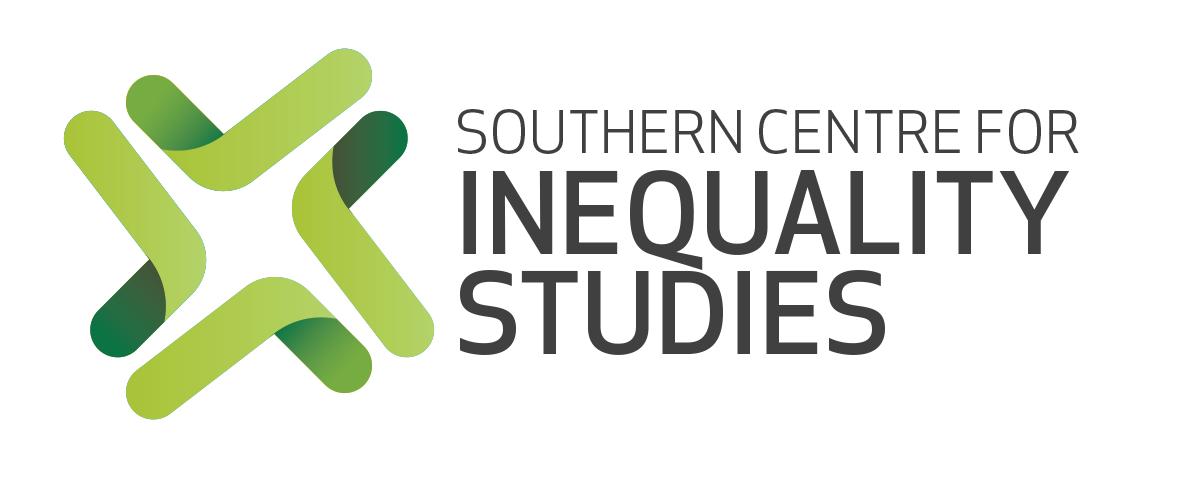-
Estimating the Distribution of Household Wealth in South Africa
SCIS Working Paper | Number 3 | Estimating the Distribution of Household Wealth in South Africa | April 2020
Author: Aroop Chatterjee, Léo Czajka and Amory Gethin
This working paper is the result of a collaboration between the Southern Centre for Inequality Studies and the World Inequality Lab. It provides estimates on the distribution of personal wealth in South Africa by combining tax microdata covering the universe of income tax returns, household surveys and macroeconomic balance sheets statistics.
-
A Wealth Tax for South Africa
SCIS Working Paper | Number 14 | A Wealth Tax for South Africa | January 2021
Authors: Aroop Chatterjee, Léo Czajka and Amory Gethin
This working paper provides the details behind the op-ed that proposes a wealth tax to assist with fiscal sustainability, as well as reduce extreme wealth inequality. It considers the feasibility of implementing a progressive wealth tax to collect additional government revenue and reduce inequality in South Africa in the wake of the COVID-19 crisis. Drawing on their companion paper on wealth inequality in South Africa, the authors estimate that under conservative assumptions, a progressive wealth tax on the richest 1% could raise between 1.5% and 3.5% of GDP.
Based on this paper, there is also a wealth tax simulator available here. This tool allows the user to change tax rates, thresholds, and parameters (such as evasion rates and depreciation of wealth) to see how much revenue it generates, how much tax an individual would have to pay, and how it compares to other government expenditures and revenues.
-
Wealth Inequality and Elites in the global South
SCIS Working Paper | Number 48 | Mapping the Wealth Elites of India
Authors: Surinder S. Jodhka and Vamsi Vakulabharanam | June 2023
The paper explores the processes that produce, expand/dissolve and reproduce the extreme concentration of wealth in the context of the institutional and social structures in India. The study engages with the historical and empirical processes of big wealth in India.
SCIS Working Paper | Number 49 | Wealth and its accumulation in Bombay/Mumbai
Authors: Sripad Motiram and Kiran Limaye | June 2023
This paper analyses wealth in Bombay/Mumbai by considering three historical phases: pre-colonial and colonial (sixteenth century-1947), independence to pre-liberalisation (1947-91) and post-liberalisation (1991-present).
SCIS Working Paper | Number 50 | Wealth elites in Delhi-NCR
Authors: Anjana Thampi and Ishan Anand | June 2023
In this paper, we study the evolution of wealth in this region using secondary data, primary data collection, and detailed interviews. Our interviews of key informants and case studies of wealthy elites revealed five key themes: real estate, land, and farmhouses; caste and community networks; start-ups; politics and wealth creation; and investment in educational institutions.
SCIS Working Paper | Number 51 | Wealth elites of Kolkata
Authors: Saswata Guha Thakurata, Manas Ranjan Bhowmik and Riona Basu | June 2023
In this paper, focusing on the city of Kolkata, we present a narrative concerning, (a) The caste-class-ethnicity intersectionality with respect to wealth ownership; (b) The sectoral dimension of wealth creation; and (c) the spatial implications of the process of wealth accumulation.
Authors: Purendra Prasad and Raviteja Rambarki | June 2023
Taking into consideration the agrarian background of elites and subsequent emergence of professional classes on one hand, and diverse trajectories of business elites on the other, this paper tries to explain the current wealth-accumulation dynamics in Hyderabad City region through a political economy perspective.
SCIS Working Paper | Number 53 | Brazil Colonial Legacy and Growth Patterns
Authors: Lena Lavinas, et al. | June 2023
This paper provides a very concise view of the trajectory of Brazil since it became a republic. It goes through the 20th century and into the 21st century to systematize how the different phases of economic development reproduced and reformatted the inequalities inherited from the country's colonial-slave period.
SCIS Working Paper | Number 54 | The Brazilian Tax System: Regressive and Biased
Authors: Lucas Bressan, Ana Carolina Cordilha, João Paulo Constantino and Pedro Rubin | June 2023
The goal of this article is to unpack the regressive and biased nature of the Brazilian tax system. It combines data from national and international institutions for the past two decades to provide a comprehensive understanding of the tax system's role in shaping income and wealth gaps.
SCIS Working Paper | Number 55 | Mapping Recent Trends in the distribution of wealth in Brazil
Authors: Lena Lavinas, Ana Carolina Cordilha, Lucas Bressan and Pedro Rubin | June 2023
The paper describes the recent evolution of financial and non-financial personal wealth in Brazil, with an aim to indicate how the different forms of wealth - in particular the strong expansion of fictitious capital - reshape inequalities in Brazil.
Authors: Francisco Bedê, José Maurício Domingues, Mônica Herz, Guilherme Leite Gonçalves, and Maria Elena Rodríguez | June 2023
The article analyses the relation between the state and the political system, on the one side, and capital and capitalists, on the other, in Brazil, especially under the Bolsonaro government.
SCIS Working Paper | Number 57 | Urban property, expropriation and wealth concentration in Brazil
Authors: Mariana Fix, João Paulo Constantino and André Doca Prado | June 2023
This paper aims to identify and characterise changes and continuities in the real estate wealth, with a focus on the residential segment.
Our paper concludes that there is extreme wealth inequality in South Africa and there has been no decline since the end of Apartheid. The headline finding reveals that the top 10% own 85% of private wealth while the bottom 50% are net debtors.


